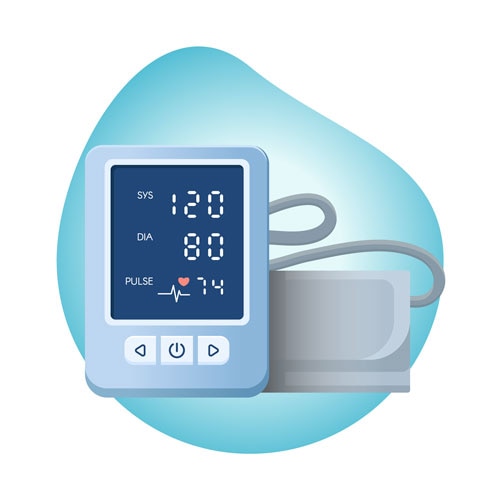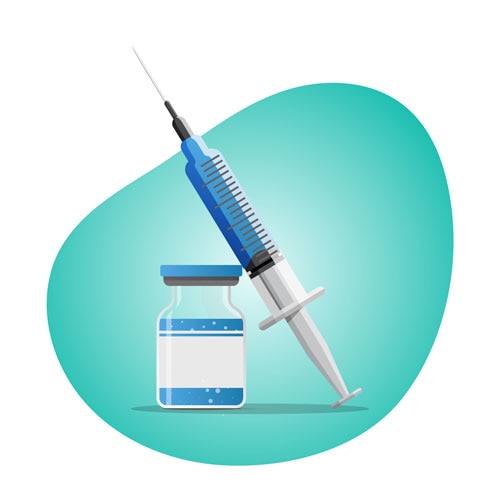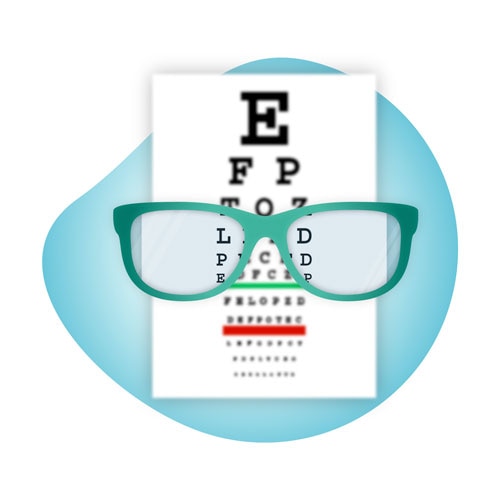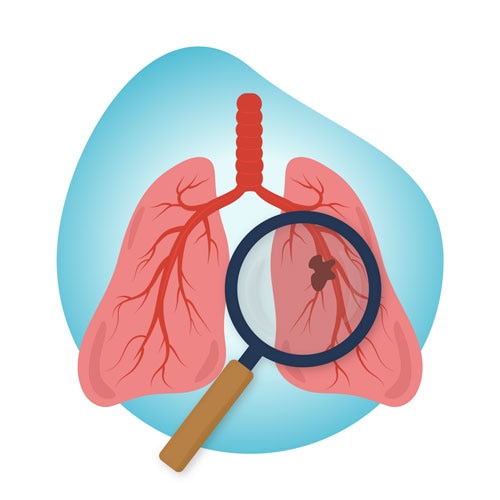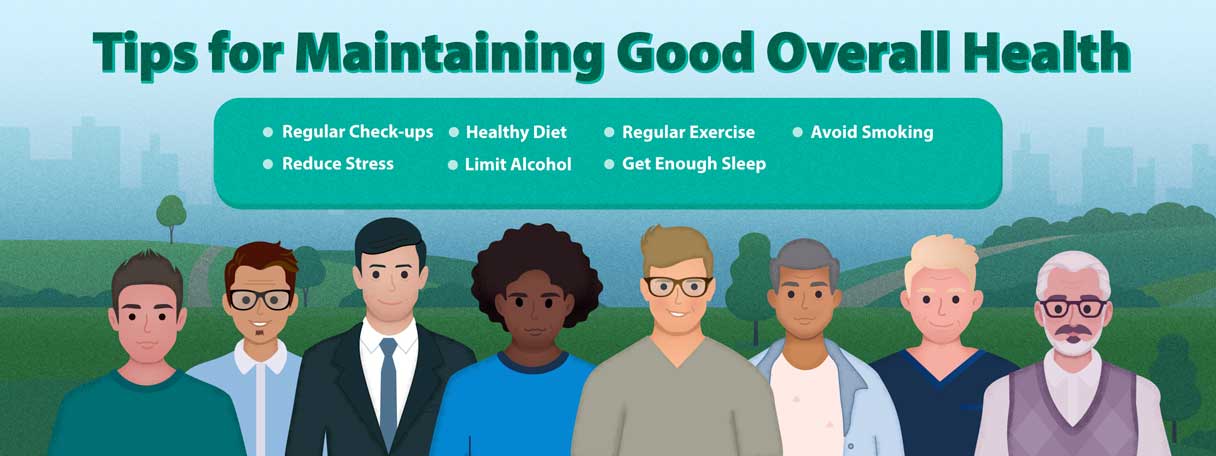
Scheduling routine screenings is one of the most important things men can do for their overall health. Getting routine checkups and health screenings with your general physician and seeing specialists as needed — like cardiologists, gastroenterologists and audiologists — are key steps to maintaining good health. In addition, keeping up with annual checkups and adopting a healthier lifestyle can help minimize the possibility of many preventable diseases and conditions.
Here are seven tips to help men protect and optimize their health:
1. Get regular checkups
This is an ideal time for your primary care doctor to check your blood pressure and cholesterol and perform other important tests and health screenings for men.18 That may include screenings for testicular cancer, heart disease and diabetes. These types of tests can help detect problems early, when they're easier to treat. Keep in mind that men's health and predisposing factors can change with age, too. Certain life stages may call for more attention to specific men's health screenings.
2. Eat a healthy diet
Eat a variety of nutrient-rich foods, including fruits and vegetables, lean meats and whole grains, while limiting salt and processed foods.18 A healthy diet can help lower your risk of preventable conditions like heart disease and diabetes. Focus on a variety of healthy foods (along with plenty of water) to help ensure your body gets the nutrients it needs for a healthy immune system.
3. Be active
Regular exercise is an important way for men to maintain a healthy weight and help prevent health conditions like heart disease and diabetes. Any activity is better than no activity. Choose activities that you enjoy to keep you motivated to continue your workout routine.18
4. Avoid smoking and secondhand smoke
Quitting smoking and avoiding secondhand smoke reduces your risk of heart and lung disease and cancer.18
5. Limit alcohol consumption
Evidence has shown that alcohol can increase your overall chances of death from cancer and heart disease. While previous studies proposed potential health benefits of moderate alcohol consumption, more recent information shows this may not be true.19
6. Manage stress
Reducing stress can lower your risk of heart disease, obesity, high blood pressure and depression.18 Taking care of your body, making time to unwind and connecting with others are some healthy ways to cope with stress.20 Pay attention to signs of depression and don't hesitate to reach out to loved ones or your doctor for help in managing your mental health.
7. Get enough sleep
Chronic sleep deprivation may boost your risk of heart disease and other health conditions. Aim for seven to eight hours of sleep each night. For better sleep quality, don’t nap after 3 p.m., try going to bed and waking up around the same time every day and limit screen time before bed.21
Managing Health and Wellness Costs With the CareCredit Credit Card
If you are looking for an option to help manage your health and wellness costs, consider financing with the CareCredit credit card. The CareCredit credit card can help you pay for the care you want and need and make payments easy to manage.* Use our Acceptance Locator to find a provider near you that accepts CareCredit. Continue your wellness journey by downloading the CareCredit Mobile App to manage your account, find a provider on the go and easily access the Well U blog for more great articles, podcasts and videos.
Your CareCredit credit card can be used in so many ways within the CareCredit network including vision, dentistry, cosmetic, pet care, hearing, health systems, dermatology, pharmacy purchases and spa treatments. How will you invest in your health and wellness next?
Expert Reviewer
Steve Marshall, D.N.P., M.S.N., B.S.N., R.N.
Steve Marshall has more than 30 years of nursing experience, with diverse expertise in clinical leadership, ER, oncology, infectious disease and more. Using his clinical knowledge, he has written for top publications including Everyday Health, the National Council on Aging and Next Avenue. He is dedicated to combining his extensive nursing knowledge with well-crafted storytelling to help those seeking factual medical information.
Author Bio
Kate Bayless is a health and wellness freelance writer with 15 years of experience. Her work has appeared in Parents, Women's Health, Beachbody and OpenFit.





